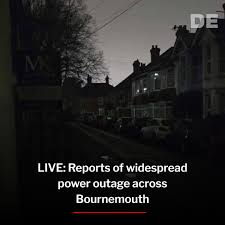The Impact of Power Cuts in the UK: What You Need to Know

Introduction
Power cuts, often referred to as blackouts, can significantly disrupt daily life, affecting both residential and commercial sectors. These sudden interruptions to the electric supply can result from various factors, including extreme weather events, infrastructure failures, or maintenance activities. Given the reliance on electricity for virtually every aspect of modern living, understanding the causes, implications, and preparedness strategies is crucial for individuals and organisations alike.
Recent Events and Causes
In recent weeks, the UK has seen a series of power cuts across various regions, with reports indicating that thousands of households have been left without electricity due to adverse weather conditions. Heavy storms have battered parts of the country, leading to downed power lines and transformer failures. The National Grid has urged citizens to remain patient as repair crews work around the clock to restore power.
Additionally, the ongoing challenges faced by energy providers, particularly in the wake of the pandemic, have highlighted the vulnerabilities in the electricity supply chain. Officials from the Department for Business, Energy & Industrial Strategy (BEIS) have pointed out that ongoing investment in infrastructure and technology is necessary to bolster resilience against future power cuts.
Effects on Daily Life
Power cuts can have far-reaching effects on daily activities and essential services. For businesses, especially those reliant on refrigeration or electronic payment systems, the impact can be severe, potentially resulting in financial losses and a compromised ability to serve customers. Hospitals and emergency services also depend on a consistent power supply, making backup systems a critical element of their operations.
For households, the experience of a power cut can range from minor inconveniences to significant disruptions, particularly for those who rely on electric heating or cooling systems. Vulnerable populations, including the elderly and those with medical conditions that require electronic devices, are particularly at risk during prolonged outages.
Preparedness and Response
To mitigate the effects of power cuts, experts recommend that individuals and businesses prepare in advance. This can include having an emergency kit, which should contain essentials such as flashlights, batteries, and non-perishable food items. Additionally, it is advisable for residents to be informed about their local energy providers and any protocols for reporting outages.
Local authorities also play a critical role. Creating community resilience plans and conducting regular training for emergency responses can significantly influence how effectively communities cope with power disruptions.
Conclusion
Power cuts are an unavoidable aspect of modern life, often driven by unpredictable factors. As the UK faces challenges in energy resilience, both individuals and businesses must adopt proactive measures to prepare for outages. Staying informed about the power supply system and having contingency plans can significantly reduce the frustration and impact of unexpected power cuts. With ongoing developments in energy infrastructure, there is hope that the frequency and duration of such events may decrease, leading to a more stable electricity supply for all.









